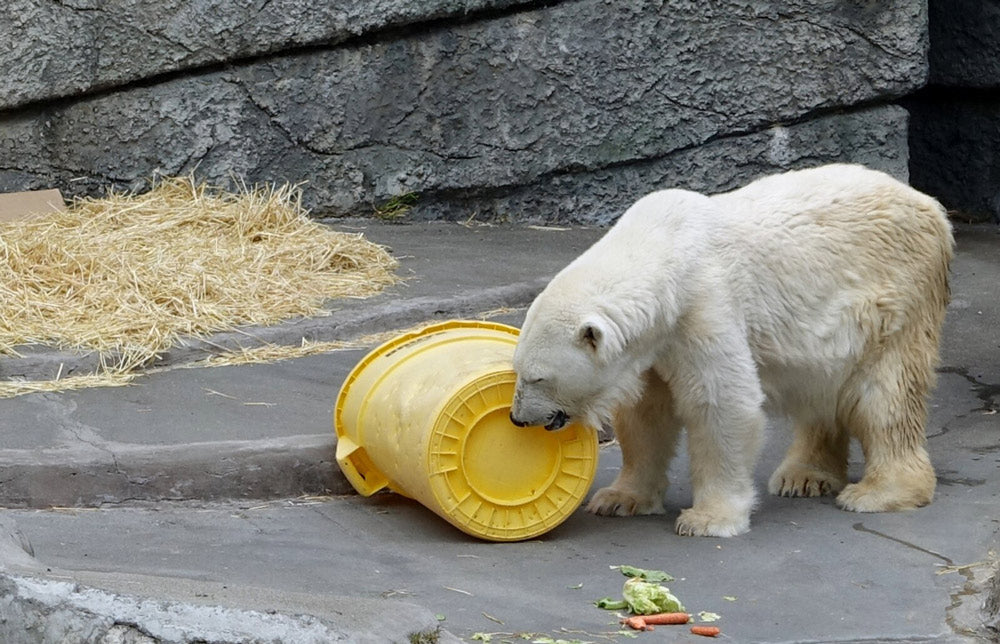San Francisco Zoo Decline Puts Animals and Visitors at Risk
Matthew Russell
The San Francisco Zoo, a beloved but aging institution, is facing serious scrutiny. Reports from the San Francisco Animal Control and Welfare Commission paint a bleak picture, describing the zoo as “dilapidated” and “extremely outdated,” with conditions that pose risks to both animals and visitors.
This scathing assessment has left many questioning whether the zoo can continue to operate under its current management, and if a dramatic overhaul is overdue.

Photo: Wikimedia Commons / Michael Fraley, License: CC BY 2.0
Unsafe and Outdated Conditions
The Commission’s report, based on an August visit, found multiple hazards throughout the zoo. Enclosures, some dating back to the WPA era, struggle to meet basic welfare standards. Certain areas are so neglected that they’ve become overrun by rodents. Zoo officials acknowledge the need for upgrades, but current improvements seem too minor to address the pressing issues cited by the commission. According to SFist, a lion habitat proved particularly troubling, with a lone lion found hiding under a concrete table in an enclosure that is nearly 90 years old.
Another disturbing example involves the kangaroo habitat, which reportedly lacks running water. Conditions in the gorilla enclosure are equally worrisome; the habitat frequently floods during heavy rains, and other animals face similar challenges in spaces that fail to replicate their natural environments. Justin Barker, founder of the SF Zoo Watch, told NBC Bay Area that the zoo was “one of the worst-run zoos in the country.”
Photo: Wikimedia Commons / Daderot, License: Public Domain
A History of Neglect
For years, the San Francisco Zoo has operated on a shoestring budget, barely maintaining the minimum standards for accreditation. The Association of Zoos and Aquariums last accredited the zoo in 2022, but this seems to have done little to improve conditions. The zoo’s aging infrastructure reflects a history of neglect, with mismanagement compounding the issue. According to a SFGate report, zoo staff informed the commission that cages are “crawling with rodents,” and one visitor described the zoo’s langur exhibit as “imposing and dreadful,” likening it to a jail cell.
The zoo has also seen incidents where animals escaped or were subjected to unsafe conditions, endangering both patrons and animals. In 2007, a tiger escaped its enclosure and tragically killed a visitor, highlighting critical gaps in the zoo’s security measures. Although management made updates following the tragedy, the commission’s report indicates that more work remains to ensure visitor and animal safety.

Photo: Wikimedia Commons / Brocken Inaglory, License: CC BY-SA 3.0
The Panda Controversy
Despite these issues, San Francisco Mayor London Breed has been vocal about her plans to bring pandas to the zoo. The proposal, which would involve significant fundraising efforts, has met mixed reactions. Critics argue that bringing pandas into a zoo plagued by poor infrastructure and unsafe conditions could place these sensitive animals at risk. The Commission echoes this sentiment, stating that without a comprehensive overhaul, the zoo would be ill-equipped to house pandas. As ABC7 reports, Supervisor Ahsha Safai called for attention to the zoo’s existing deficiencies, suggesting the city should “get its house in order” before taking on the responsibilities of a panda habitat.
Adding to the controversy, the City of San Francisco currently faces budgetary constraints. Critics argue that focusing on pandas is a financial distraction, diverting funds that could otherwise support much-needed repairs. However, Mayor Breed’s office sees the pandas as a potential catalyst for fundraising. In a statement, Breed’s spokesperson expressed optimism that a high-profile attraction like pandas would “expedite and invest in improvements and enhancements where necessary,” SFist reports.

Photo: Wikimedia Commons / Daderot, License: Public Domain
The Case for Change
Animal rights advocates and community members are now calling for a city-led audit of the zoo. Such an audit would be the first comprehensive review in over two decades, allowing city officials to assess whether current management practices align with best standards for animal care. Activists also argue that the city should re-evaluate its contract with the nonprofit San Francisco Zoological Society, which currently oversees zoo operations. According to Yahoo News, many believe that fundamental changes in management and funding priorities are needed to restore public confidence and bring the zoo up to modern standards.
This call for accountability comes amid growing public concern over the welfare of the zoo’s inhabitants. Animal advocates suggest that a strategic redesign could improve animal welfare and visitor experience, with a focus on creating larger, more naturalistic habitats. The Animal Control and Welfare Commission has recommended a strategic redesign to modernize the zoo, emphasizing the need for enclosures that allow animals to engage in natural behaviors and seek shelter from human view. This would not only improve the quality of life for the animals but also enhance visitor engagement and educational value.

Photo: Wikimedia Commons / Daderot, License: Public Domain
A Humane Future
As the city considers its next steps, the zoo’s management faces mounting pressure to address these issues. With calls for an audit from local supervisors, it appears that San Francisco’s governing bodies may take a more active role in shaping the future of the zoo. If city officials act decisively, the zoo could transform into a facility that better serves both its animals and the public. But without immediate action, the zoo risks continuing down a path of decline, further jeopardizing the safety and well-being of everyone involved.
The San Francisco Zoo has the potential to be a sanctuary for animals and a source of pride for the city. But to realize this vision, substantial investment and a commitment to change are essential.
Click below to take action for the animals of the San Francisco zoo!


